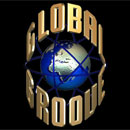Elmer Bernstein (April 4, 1922 – August 18, 2004) was an American composer and conductor who is best known for his film scores. In a career that spanned more than five decades, he composed "some of the most recognizable and memorable themes in Hollywood history", including over 150 original movie scores, as well as scores for nearly 80 television productions. Examples of his widely popular and critically acclaimed works are scores to The Magnificent Seven, The Ten Commandments, The Great Escape, To Kill a Mockingbird, Ghostbusters, The Black Cauldron, Heavy Metal, Airplane!, The Rookies, Cape Fear, Animal House, The Age of Innocence, and Far from Heaven.
Bernstein won an Oscar for his score to Thoroughly Modern Millie (1967) and was nominated for 14 Oscars in total. He also won two Golden Globe Awards, an Emmy Award, and was nominated for two Grammy Awards.
Bernstein was born to a Jewish family in New York City, the son of Selma (née Feinstein, 1901-1991), from Ukraine, and Edward Bernstein (1896-1968), from Austria-Hungary.
Contrary to popular assumption, he was not related to the celebrated composer and conductor Leonard Bernstein, but the two men were friends. Within the world of professional music, they were distinguished from each other by the use of the nicknames Bernstein West (Elmer) and Bernstein East (Leonard). They also pronounced their surnames differently. Elmer pronounced his "BERN-steen", and Leonard used "BERN-stine".
During his childhood, Bernstein performed professionally as a dancer and an actor, in the latter case playing the part of Caliban in The Tempest on Broadway, and he also won several prizes for his painting. He attended Manhattan's progressive Walden School and gravitated toward music at the age of twelve, at which time he was given a scholarship in piano by Henriette Michelson, a Juilliard teacher who guided him throughout his entire career as a pianist. She took him to play some of his improvisations for composer Aaron Copland, who was encouraging and selected Israel Citkowitz as a teacher for the young boy.
Elmer Bernstein's music has some stylistic similarities to Copland's music, most notably in his western scores, particularly sections of Big Jake, in the Gregory Peck film Amazing Grace and Chuck, and in his spirited score for the 1958 film adaptation of Erskine Caldwell's novel God's Little Acre.
He had a lifelong enthusiasm for an even wider spectrum of the arts than his childhood interests would imply and, in 1959, when he was scoring The Story on Page One, he considered becoming a novelist and asked the film's screenwriter, Clifford Odets, to give him lessons in writing fiction. '
He influenced Alan Silvestri, Georges Delerue, Howard Shore, James Newton Howard, John Barry, Lalo Schifrin, Dick Hyman, Hans Zimmer, James Horner, Jerry Goldsmith, John Williams, Trevor Jones, Mark Isham, Bear McCreary, Danny Elfman, Alan Menken, and Randy Newman.
On June 25, 2019, The New York Times Magazine listed Elmer Bernstein among hundreds of artists whose material was reportedly destroyed in the 2008 Universal fire.
Read more on Last.fm. User-contributed text is available under the Creative Commons By-SA License; additional terms may apply.

